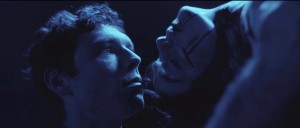Actress and former Game of Thrones star Maisie Williams offered some insight into her harrowing childhood, especially her “traumatic relationship” with her dad, in an interview on Steven Bartlett’s Diary of a CEO podcast.
Williams, who has rarely spoken about her father in the past, said she didn’t want to offer too many details about her relationship with him because what happened also “affects my siblings and my whole family.” But she did state, “I, as a young child before the age of eight, had a traumatic relationship with my dad… That really consumed a lot of my childhood. Ever since I can remember, I’ve really struggled sleeping. And I think a lot of the traumatic things that were happening, I didn’t realize that they were wrong.”
Growing up, Williams said she remembered feeling distant from other kids, wondering why they didn’t seem “to understand this pain or dread or fear” that she felt. She also wondered, “Where does the joy… when does that come for me?”
Williams said she was about four months old when her mother left her father, and described things as “bad before that.” It wasn’t until Williams was eight that she realized what had really been going on. She recalled struggling in school and having a teacher take her aside and ask her questions like how she was feeling and whether she was hungry.
“They were asking the right questions,” Williams said, as she began to fight back tears. “I had so many people who loved and cared about me so much, but I’d never been asked the right questions where I could really say what was wrong.”
Williams said this was the moment when “all of the doors were sort of open, and all of these things that we were experiencing were out on the table.” But she admitted that at the time, she wanted to push back and say, “These things aren’t bad, and you’re trying to take me away from my dad, and that’s wrong.”
Without providing specifics, Williams said that she had essentially been “indoctrinated,” noting it might explain her current obsession with cults. “I get it, I was in a child cult against my mother.” She added, “So I was really fighting it at the beginning, but basically my whole world flipped on its head. And even though all these things I was feeling — ‘Oh my God, I’m so glad I don’t have to see my dad anymore’ — it still was against everything I knew to be true.”
When asked how she feels about her father now, Williams said she’d been thinking a lot about her childhood experience lately and working to overcome any personal guilt that she might’ve felt for what had happened to her. “It’s not because of me that these bad things happened when I was a child,” she said, adding: “I felt there was something inherently wrong with me, or us, because we did lots of things wrong all the time, which is why you’d be mistreated… Especially because it was a parent, and they’re supposed to like you.”
Willaims said she’s now able to “separate” herself from it a bit and reflect on her dad as a person. “What happens that you get so stuck in your mind that you can just permanently mistreat people? Children, your own children? But taking that step back and seeing it more objectively makes me quite interested in the guy — I don’t know him at all — and like, what happened to you when you were a kid?”
She added, “I don’t know if any of the answers to that will help me in my journey, but it is sort of a nicer way to think of him than as someone who doesn’t love me or like me.”

